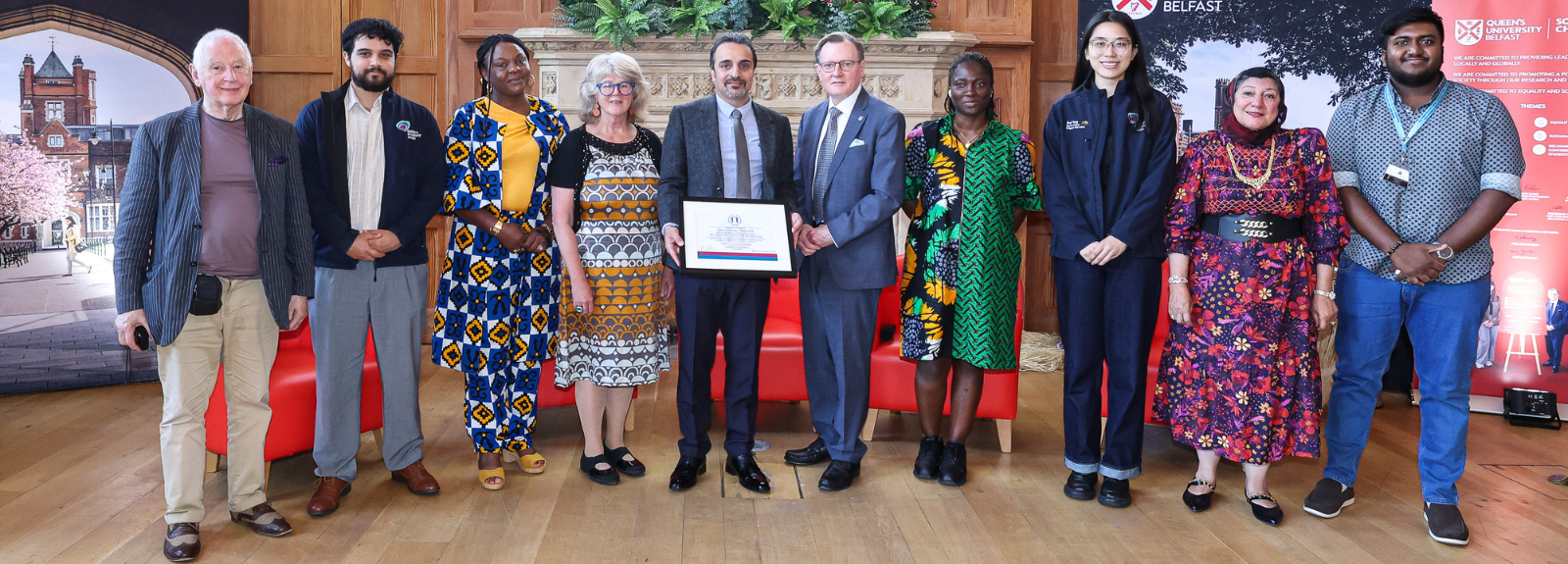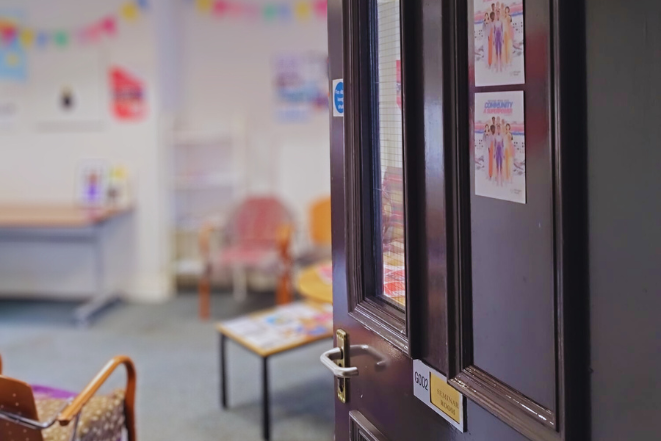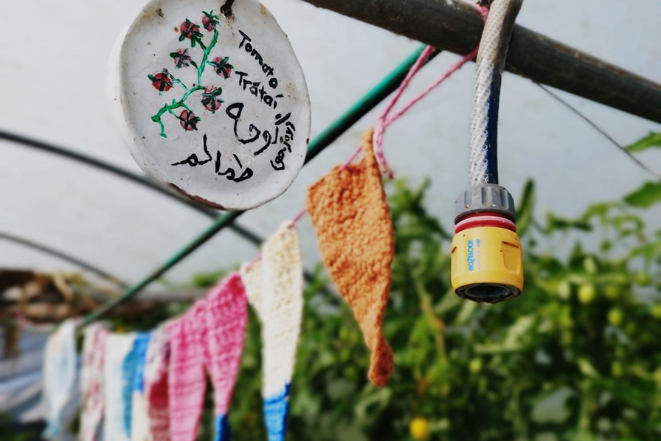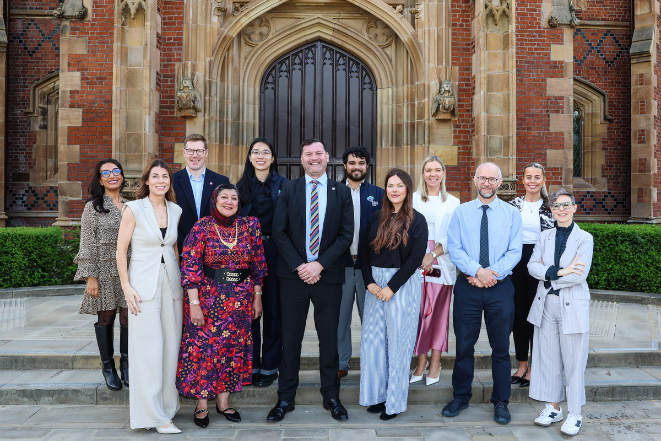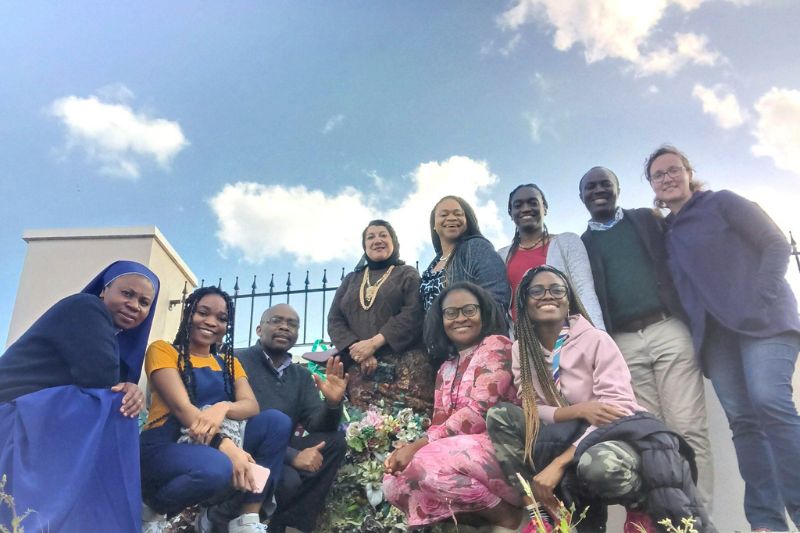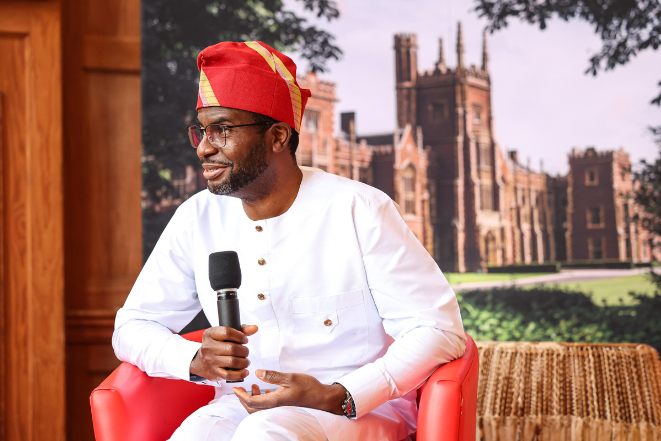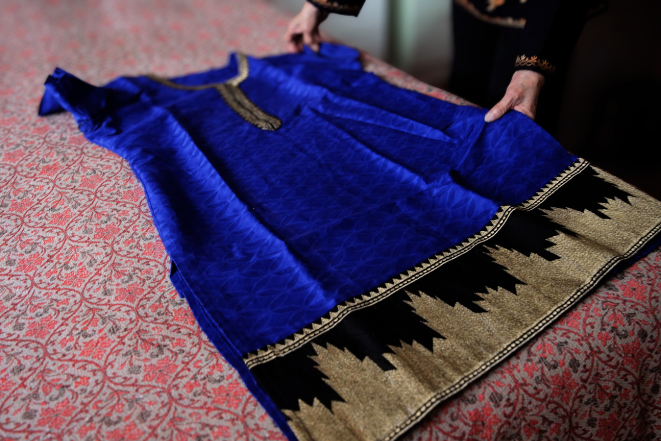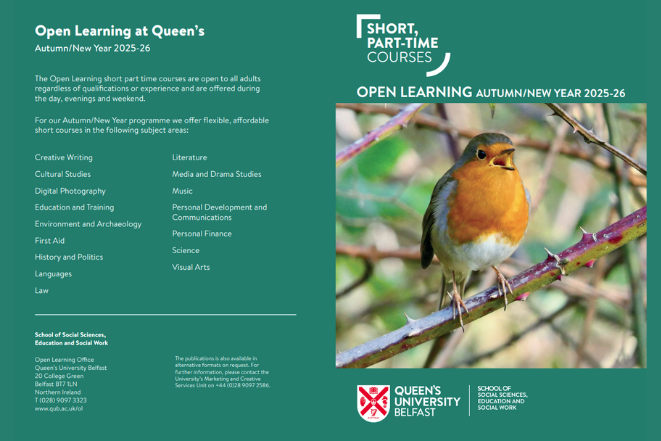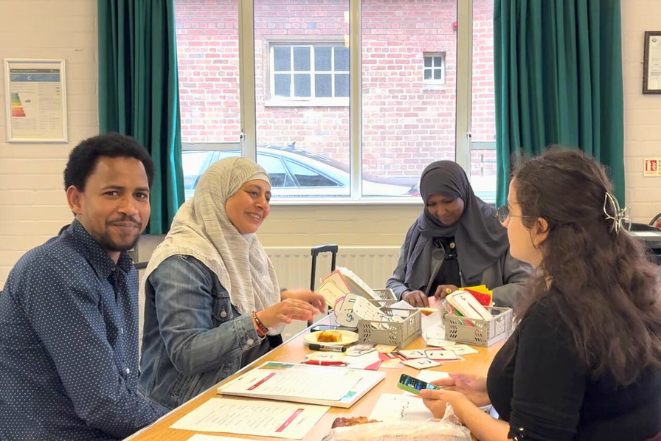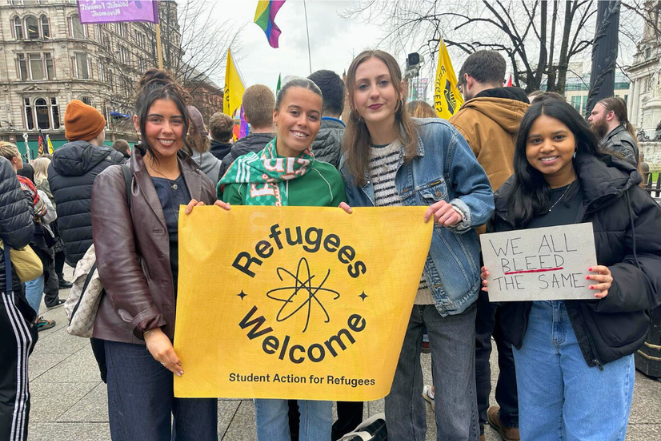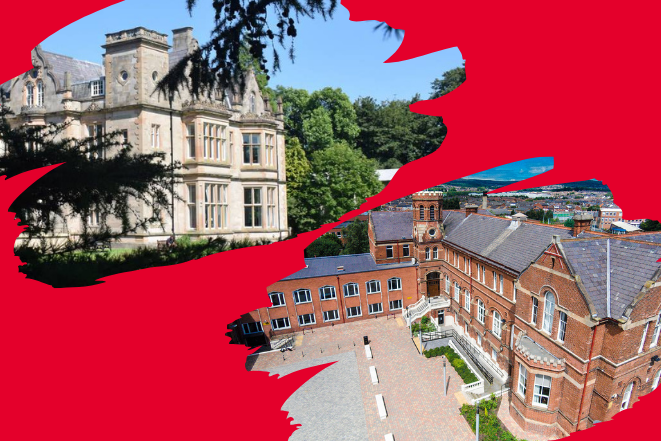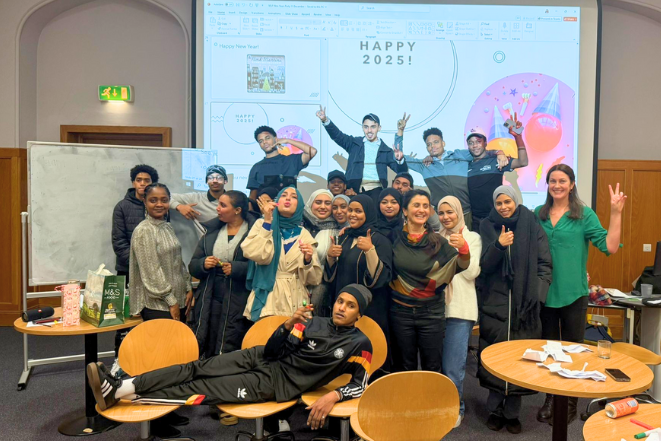Our Path To Sanctuary
WE ARE A UNIVERSITY OF SANCTUARY!
Click on the video below to be welcomed in 16 different languages!
INTRO
WE ARE A UNIVERSITY OF SANCTUARY
In May 2025, as it marked the beginning of its 180th anniversary year, Queen’s University Belfast was recognised as the first University of Sanctuary in Northern Ireland, in acknowledgement of the support it provides to local refugee, asylum-seeker and migrant communities, as well as the enhanced opportunities it offers to access higher education. From launching the first Sanctuary scholarships to creating this website, from signing the Sanctuary pledge to establishing our internal Sanctuary Organisational Group, and from community consultations to hosting the first Sanctuary Coffee Mornings, we are proud of our Path to Sanctuary milestones, and mindful that the award marks only the beginning.
Sanctuary TimelineFEATURED
ABOUT US
Below, you can explore the existing support systems, opportunities, projects, and research initiatives already in place at Queen's University for our migrant, asylum seeker, and refugee communities.
